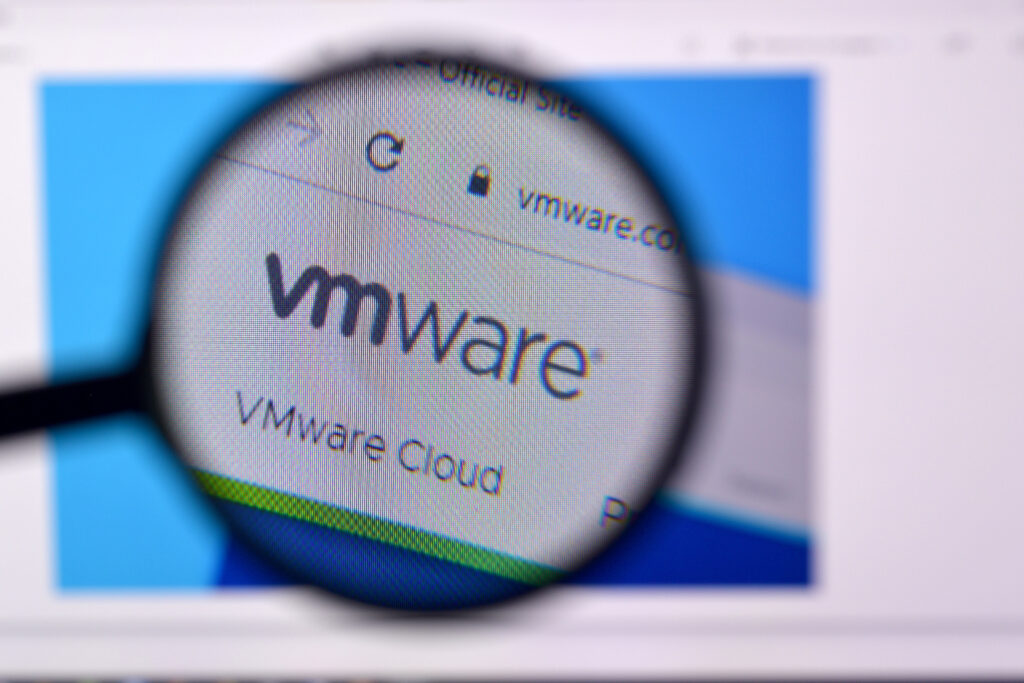
In a landmark deal valued at $69 billion, Broadcom’s acquisition of VMware has sent ripples through the tech industry. This merger raises significant concerns for VMware customers, notably the risk of vendor lock-in, escalating costs, and diminished operational flexibility. Many businesses find themselves reevaluating their cloud infrastructure choices amidst these changes. This is where alternative solutions come into play. Discover how innovative private cloud solutions such as Zimcom’s can liberate your business from these constraints and offer a more adaptable, cost-effective future.
Why Are Customers Looking for Alternative Solutions?
As Broadcom’s acquisition of VMware introduces uncertainty, many customers are reconsidering their cloud infrastructure choices. Here are the main reasons driving this shift:
- Expensive Exclusive Licensing: VMware’s proprietary licensing fees are high, making it costly for enterprises to maintain. The Forrester report indicates a 20% potential exit rate by large enterprise clients in 2024 due to escalating costs and restrictive licensing.
- Need for Flexibility and Agility: Businesses need adaptable solutions that can quickly respond to changing demands, which VMware often struggles to provide. Alternatives like OpenStack offer the flexibility that modern enterprises require to stay competitive.
- Cost-Effectiveness: Alternatives to VMware often offer more budget-friendly options without compromising on features. Open-source solutions like KVM on OpenStack provide significant cost savings and avoid the premium fees associated with VMware.
- Avoiding Vendor Lock-In: Customers seek alternatives to escape the constraints of vendor lock-in, ensuring more control over their IT infrastructure. Open-source platforms provide the flexibility and freedom that proprietary solutions like VMware do not.
These factors collectively push businesses to explore more flexible, cost-effective, and scalable alternatives to VMware.
What Factors Should You Consider When Choosing a VMware Alternative?
Choosing the right VMware alternative involves evaluating several critical factors to ensure it meets your business needs. Here are key considerations:
- Cost: VMware’s price hikes and associated expenses, including OS licenses, hardware, support, and training, can strain budgets. Look for alternatives that offer transparent, budget-friendly pricing without compromising features.
- Compatibility: Ensure the alternative is compatible with your existing systems and hardware to avoid costly overhauls and integration issues.
- Ease of Use: Opt for a solution that simplifies usage and maintenance to minimize training and support costs. User-friendly interfaces and streamlined management can significantly reduce operational complexity.
- Scalability: Your chosen platform should support infrastructure growth and multiple virtual machine deployments, enabling your business to scale seamlessly as it expands.
- Performance and Reliability: Select a platform known for steady, secure, and stable performance. Reliable performance ensures business continuity and minimizes disruptions.
- Support and Service: High levels of support and reliable service teams are crucial for smooth operations. Ensure the alternative offers robust customer support to assist with any issues that arise.
Evaluating these factors will help you find a VMware alternative that aligns with your operational requirements and long-term goals.
Experience the Power of Personalized IT Support with Trusted Cloud Experts
What Are Zimcom’s Alternative Solutions to VMware?
In the face of Broadcom’s acquisition of VMware, businesses should explore more flexible and cost-effective cloud solutions. Zimcom provides alternatives that help companies avoid vendor lock-in and optimize their cloud infrastructure:
- Avoiding Vendor Lock-In: Zimcom offers open-source solutions like KVM on OpenStack. These options provide stability, flexible pricing models, and significant cost savings by eliminating dependency on proprietary software like VMware.
- Tailored Guidance and Support: Zimcom adopts a consultative approach to cloud migration. Their expert team offers personalized guidance and support throughout the migration process, ensuring a seamless transition and optimized cloud infrastructure. Zimcom always answers the phone for 24/7 support.
By leveraging Zimcom’s alternative solutions, businesses can achieve greater flexibility, control, and cost-efficiency in their cloud environments.
How Can Zimcom Help VMware Customers?
Zimcom offers specialized services to optimize cloud infrastructure and make informed decisions. They conduct thorough assessments of existing VMware licenses, perform comprehensive audits to identify optimization opportunities, and create customized transition roadmaps for smooth migration to alternative solutions. By aligning technology investments with business objectives, Zimcom supports future growth and scalability, ensuring efficient transitions and optimized cloud infrastructure.
Are you ready to break free from vendor lock and optimize your IT infrastructure?
As businesses navigate the uncertainties introduced by the Broadcom/VMware merger, Zimcom stands out as a reliable partner. By offering flexible, cost-effective cloud solutions, Zimcom ensures a confident transition away from vendor lock-in. Their personalized IT support and expertise make them the ideal choice for optimizing your IT infrastructure.
Book a no-obligation consultation with Zimcom today. Experience the power of personalized IT support and see how our tailored solutions can benefit your business.
Frequently Asked Questions
1. How can private cloud solutions help you break free from VMware vendor lock?
Private cloud solutions like those offered by Zimcom provide alternatives to VMware, helping businesses avoid high costs, limited flexibility, and vendor lock-in by leveraging open-source platforms like KVM on OpenStack.
2. Why are customers looking for alternatives to VMware?
Customers are seeking alternatives due to VMware’s high license renewal costs driven by product bundles that include features that many organizations do not need as well as a perceived strategic focus towards large enterprise customers and away from small and mid-market organizations following Broadcom’s recent acquisition.
3. What factors should be considered when choosing a VMware alternative?
Key factors include cost, compatibility, ease of use, scalability, performance, support, and the scale of the organization to ensure the alternative meets specific business needs.
4. How does Zimcom help VMware customers transition?
Zimcom assists by evaluating current infrastructure usage, conducting comprehensive cloud services audits, and creating customized transition roadmaps, ensuring a smooth and optimized migration process.


